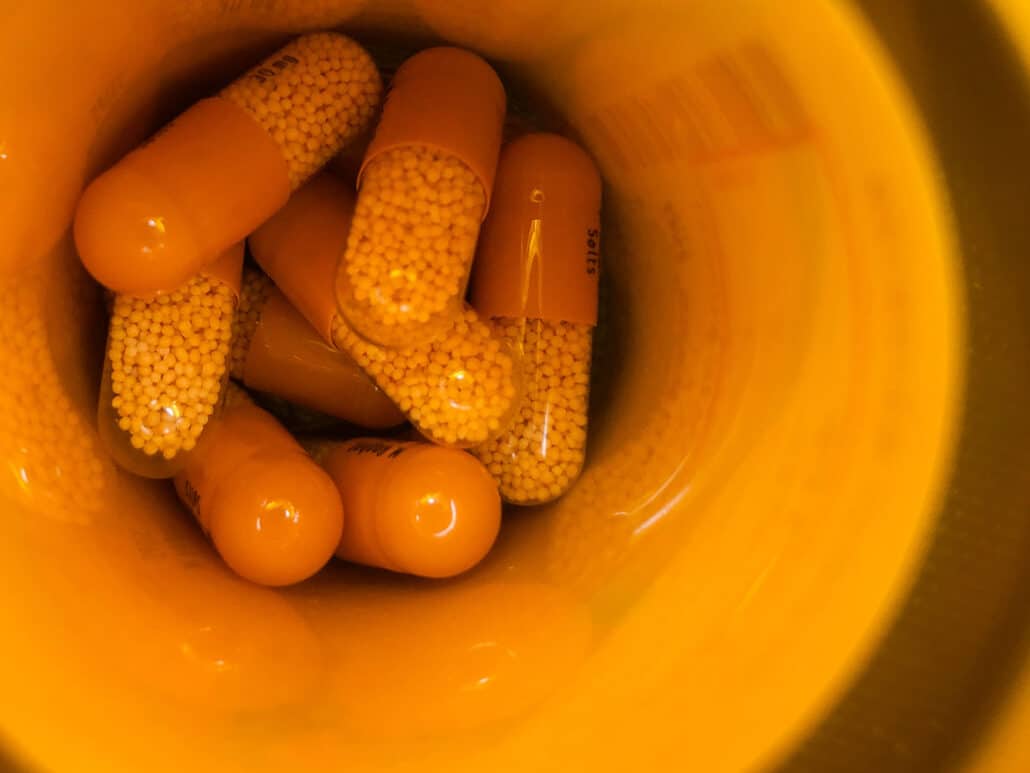Did you know that according to the National Institute on Drug Abuse, over 16 million people in the United States have a drug addiction? And with the rise of prescription drug use, this number is only expected to increase. One such prescription medication that has been gaining popularity is Adderall.
With such a high number of individuals using this drug, it’s essential to understand the potential risks and consequences associated with Adderall use. But what exactly is Adderall, and why are so many people using it? What are the effects of Adderall addiction, and how can someone recover from it?
If you or someone you know is struggling with Adderall addiction, it’s essential to understand the facts and seek help. In this article, we’ll discuss what Adderall addiction is, its causes and symptoms, and the different treatment options available on Long Island.

Table of Contents
What Is Adderall?
Adderall is the brand name of a prescription medication used for the treatment of Attention Deficit Hyperactivity Disorder (ADHD) and chronic sleep disorder (narcolepsy). It contains a combination of amphetamine and dextroamphetamine, which are stimulants that help increase focus and attention in individuals with ADHD. However, when used outside of its prescribed purpose, Adderall can have dangerous consequences.
Some people may use Adderall to improve academic or work performance, as it has been known to increase energy and focus. Others may use it for weight loss purposes due to its appetite-suppressing effects. However, misusing Adderall can lead to addiction, as it alters the brain’s reward system and can result in physical dependence.
College students face a heightened risk of Adderall abuse, driven by the intense pressure to excel academically. With its ability to enhance focus and concentration, it’s no surprise that Adderall reigns as the most commonly misused prescribed stimulant across the area.
The Effects of Adderall on Your Body
Adderall works by increasing the levels of dopamine and norepinephrine in the central nervous system, particularly in the brain. This increases the availability of these neurotransmitters in the synapses, boosting alertness, focus, and energy levels. This results in improved attention, alertness, and increased motivation. This is why people with ADHD experience improved concentration after taking Adderall.
However, when taken without a prescription or in higher doses than prescribed, it can lead to Adderall overdose, which has severe short-term and long-term effects on the body.
Short-term effects may include increased heart rate and blood pressure, reduced appetite, insomnia, irritability, and headache. Long-term effects of Adderall addiction may lead to more severe health conditions, which include increased blood pressure and heart rate, heart attacks, strokes, seizures, anxiety and depression, paranoia, and a weakened immune system. It can also worsen existing mental health conditions or trigger new ones.
In addition to physical health risks, abusing Adderall can also have a negative impact on mental health. Chronic misuse of the medication can result in depression, anxiety, and even psychosis. It can also worsen existing mental health conditions or trigger new ones.
How Does Adderall Addiction Develop?
While Adderall can be a helpful medication for those with ADHD and narcolepsy, it is also highly addictive. Like other stimulants, Adderall can create feelings of euphoria and energy, which can lead to misuse and abuse.
However, addiction to Adderall does not develop overnight. It often starts with someone taking the medication as prescribed, but eventually, they begin to take higher doses without a doctor’s approval in order to experience the euphoric effects. This can lead to tolerance, which means that the person needs more of the drug to achieve the same effects. Over time, this can develop into physical and psychological dependence, making it difficult for the individual to stop taking Adderall on their own.
Is It Common for People to Become Addicted to Adderall?
While not everyone who takes Adderall will become addicted, it is essential to note that the potential for addiction is high.
According to The Journal of Clinical Psychiatry, there was a significant 67% increase in the non-prescription use of Adderall among young adults from 2006 to 2011. Johns Hopkins University research further revealed that the 18 to 25 age group has the highest prevalence of Adderall abuse.
In the Substance Abuse and Mental Health Services Administration (SAMHSA) report of 2021, it was found that over 770,000 individuals aged 12 and above initiated the misuse of prescription stimulant drugs, specifically Adderall. This only shows that Adderall addiction is a growing problem, and it’s essential to address the issue before it becomes too serious.

What Triggers Adderall Addiction?
The trigger for Adderall addiction is multifaceted and varies from person to person. Some common factors that contribute to the development of dependence include:
Improper Adderall usage: Instances of improper Adderall usage include exceeding the recommended duration or frequency of intake, as well as surpassing the prescribed dosage. Additional examples encompass the acquisition of Adderall from unauthorized sources, the utilization of counterfeit prescriptions, or the usage of another individual’s prescription.
Mental health disorders: People who struggle with conditions such as Attention Deficit Hyperactivity Disorder (ADHD), depression, or anxiety may turn to Adderall as a way to self-medicate.
Peer pressure: Young adults in college or high school may feel the need to take Adderall to keep up with their peers academically. This can quickly spiral into an addiction when it becomes a regular habit.
Stress and pressure to perform: Many young adults face immense pressure to succeed in various areas of their lives, such as academics, sports, or careers. This pressure can lead them to seek out stimulants like Adderall to boost their performance and stay competitive.
Curiosity: Some individuals may experiment with Adderall out of curiosity, wanting to experience the reported effects of increased focus and energy. Unfortunately, this experimentation can quickly turn into addiction when the drug is used regularly.
Body image: In some cases, individuals may abuse Adderall as a way to lose weight or maintain a particular body image. The drug can suppress appetite and increase energy levels, making it an attractive option for those seeking to change their physical appearance.
Being Part of a Risk Group: If an individual belongs to one or more of the risk groups associated with Adderall addiction, the chances of becoming an addict significantly increase.
Some of the principal risk factors include:
- Being constantly under high stress
- Having high expectations constantly placed on the person
- Dealing with an overwhelming amount of demands
- Contact with peers who use Adderall
- Easy access to Adderall prescriptions
- Family history of mental illness
- Family history of substance abuse
- Personal history of substance abuse, mental illness, trauma, or violence
- Unemployment
- Poverty
Fear of Withdrawal: Prolonged abuse of Adderall can result in physical dependence. This not only causes the body to rely on external sources for dopamine, norepinephrine, and serotonin production but also leads to tolerance. As a result, higher and more frequent doses are required to achieve the same effects.
Individuals who reach this stage may feel incapable of functioning or thinking properly without the drug. They’ll also experience unpleasant and potentially painful symptoms that keep them dependent on the drug to avoid dealing with the aftermath.
Adderall Withdrawal Symptoms
Common symptoms of withdrawal from Adderall include:
- Headaches
- Fatigue
- Achiness
- Insomnia
- Oversleeping
- Depression
- Anxiety
- Irritability
- Aggression
- Increased appetite
- Losing focus and difficulty regaining concentration
- Nightmares
- Slurred speech
The withdrawal symptoms of Adderall are in direct contrast to the drug’s effects. The severity of these symptoms varies among patients based on the duration and dosage of Adderall usage. As expected, higher dosages and longer durations lead to more severe withdrawal symptoms.

What are the Signs of Adderall Addiction?
It’s important for loved ones to be aware of the potential side effects and risks associated with Adderall use. This includes understanding the signs of addiction and being able to recognize when an individual is struggling with substance abuse.
Adderall addiction can manifest in various ways, but some common signs and behaviors may include:
- Significant irritability
- Increased hyperactivity
- Frequent episodes of panic
- Excessive restlessness and heightened excitability
- Trembling uncontrollably
- Abdominal pain
- Insomnia
- Forgetting specific moments
- Oversleeping
- Excessive weight loss
- Constant fatigue
- Feeling disoriented
- Mood swings
In addition to the symptoms above, there are more severe manifestations to be aware of. These may include:
- Manic episodes
- Depression episodes
- Difficulty breathing accompanied by chest pain.
- Suicidal thoughts
- Extreme exhaustion
- Angry and paranoid reactions
Behavioral Signs
Besides psychological and physical symptoms, Adderall addiction often causes a range of behavioral signs such as:
- Engaging in deceptive behaviors, such as lying about Adderall usage or obtaining it illegally
- Secretive behavior
- Continuing to use Adderall even if it is causing negative consequences in one’s life, such as damaging relationships or affecting work/school performance.
- Difficulty controlling the amount of Adderall consumed
- Using Adderall for non-medical purposes (i.e., to get high or to stay awake for long periods or increase the dose to experience the same effects).
- Experiences withdrawal symptoms when attempting to stop taking Adderall
- Feeling unable to function without Adderall and believing that one cannot perform well without it.
- Relationship issues
- Social isolation
- Neglecting personal hygiene and appearance
- Disinterest in activities that were once enjoyable and fulfilling
- Impulsive behaviors
- Running out of prescription medication sooner than anticipated
- Feeling anxious about the possibility of running out of medication
- Taking medication frequently
- Financial problems due to excessive spending on Adderall or loss of employment
- Seeking out ways to get more prescriptions than necessary
- Neglecting hobbies and responsibilities

Seeking Treatment for Adderall Addiction
Adderall addiction is considered a form of substance use disorder (SUD), which is a chronic disease that requires ongoing management. Unfortunately, many individuals struggling with Adderall addiction may not seek help due to the common misconception that prescription drugs are safer than illegal drugs. However, it’s essential to recognize the danger and severity of Adderall addiction, and participating in effective treatment programs can significantly improve your chances of overcoming SUD.
Substance abuse treatment centers, such as Long Island Interventions, offer a variety of evidence-based treatment programs to help individuals overcome their Adderall addiction. These programs can be customized to meet individual needs, whether it’s an inpatient or outpatient treatment, depending on the severity of the addiction. This comprehensive approach may include:
- Detoxification,
- Individual therapy,
- Group therapy,
- Cognitive-behavioral therapy (CBT),
- Medication-assisted treatment, and
- relapse prevention techniques to help individuals manage and overcome their cravings.
Medical Detox
Medical detoxification, commonly known as detox, is a process that gradually reduces the dosage of a drug given to a patient until it is completely eliminated. This method aims to alleviate the severity of withdrawal symptoms associated with Adderall. Typically, medical detox is a feature of inpatient treatment programs.
The duration of detoxification varies depending on factors such as the duration of addiction and the patient’s accustomed dosage. It is crucial that Adderall detox is conducted under medical supervision to determine the appropriate dosage accurately and closely monitor potentially life-threatening withdrawal symptoms.
Medication-Assisted Therapy
While medications to treat Adderall addiction are yet to be established, some medications are used during recovery to ease the withdrawal symptoms and prevent complications.
Examples include Dextroamphetamine, Modafinil, and Bupropion. Administered under the supervision of medical staff, these medications can alleviate symptoms such as anxiety, depression, restlessness, and insomnia.
Behavioral Therapy
An integral component of Adderall addiction treatment is behavioral therapy due to its key role in maintaining sobriety and preventing relapse.
Several types of therapy are classified under the category of behavioral therapy, including
- CBT (Cognitive Behavioral Therapy): A type of individual counseling; the purpose of this therapy is for the patient to work through their emotions and figure out how those feelings connect to their addiction and recovery.
- Motivational Interviewing: The purpose is for the patient to receive constructive motivation and try to implement life changes by answering the interviewer’s questions.
- Contingency Management: The purpose is to find a reason to confront and correct negative behavior linked to drug abuse.
Support Groups
To ensure adherence to recovery during and after rehab, patients are guided to participate in support groups.

These include group therapy sessions, family therapy, and 12-step programs.
Holistic Therapy
Treating all parts of the patient is the key to long-lasting recovery. This is where holistic therapy comes in, dealing with the entire person – mind, body, and soul.
Components of holistic therapy include:
- Mindful practices such as meditation and deep breathing exercises.
- Nutritional counseling
- Physical therapies such as yoga and massage.
- Expressive therapies such as dance therapy, art therapy, and music therapy.
- Adventure and nature therapies such as equine therapy, outdoor behavioral therapy, and gardening.
Final Thoughts
Adderall addiction can be a difficult and complex issue to overcome alone. That’s why seeking professional help at a rehab center is crucial for successful recovery. Admitting that there is a problem can be difficult, but finding support from friends, family members, or a treatment facility can make all the difference.
When seeking Adderall rehab, it’s essential to choose a healthcare facility that offers comprehensive treatment tailored to each individual’s needs. At Long Island Interventions, we understand the unique challenges of Adderall addiction and provide personalized treatment plans to address each individual’s specific needs. At our addiction treatment center, we offer a range of treatment programs, including addiction therapy, aftercare support, and holistic therapies to help individuals maintain long-term sobriety.
So, if you or someone you know is struggling with addiction, don’t wait any longer to seek help. Contact us and take the first step towards a brighter, drug-free future. With the right support and treatment, recovery is possible, and you can overcome your addiction for good!
Please contact Long Island Interventions for information about Adderall Addiction Treatment near you.
Adderall Addiction Treatment is not directly offered by Long Island Interventions. However, we do recognize that this type of addiction treatment is often necessary and vital to one’s long-term recovery from substance abuse. If you or a loved one require any services that we do not offer, we would be glad to refer you to one of our trusted affiliate providers and treatment facilities.

